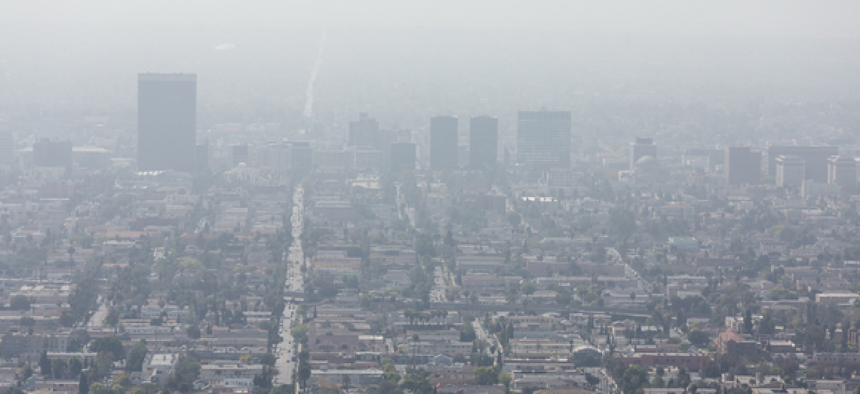Denver builds out sensor network at schools

The network could help the city better understand the link between air quality and asthma.
Of the 9,000 children in Denver's public schools, 11.3 percent have asthma, costing local families about $30 million a year. To identify the connection between poor air quality and the respiratory condition, the city is looking to the internet of things.
By placing air quality sensors at schools, the city plans to collect data on air quality, particulate matter, temperature, humidity and other environmental data to better inform equity and health policies.
The solar-powered sensors transfer data over 4G cellular networks. Wi-Fi transmission would have required creating data sharing agreements with each school, but 4G allowed officials to set up the sensors without connecting to anyone’s network, said Michael Ogletree, the air quality program manager for the Department of Public Health and Environment and the lead on this project.
The sensors are deployed in containers that are about the size of a shoebox, and each was hand painted by a local artist, he added.
Currently there are five sensors at schools and a few more located next to air-quality monitoring devices operated by the Environmental Protection Agency. Denver’s sensors collect data slightly differently than do EPA’s sensors, which will give Denver a data quality baseline to match. The city worked with TD Environmental Services to create a data platform called Airsense that aligns data from Denver's sensors with that from the EPA devices, Ogletree said.
The data is shared through the enterprise data management system, which is part of Denver's smart cities initiative. By the end of this year, Denver expects to have 10 sensors installed at 10 schools. It plans to add 10 sensors at 10 schools each year, so by the end of 2021 the city will have a network of 40 sensors, Ogletree said.
In the long term, sensor data could be used to inform traffic signal timing to lessen congestion and the resulting vehicle exhaust. Meanwhile, data from the sensors can be incorporated into classroom lessons.
Sabin World Elementary School Principal Kirsten Frassanito said earlier this year that the sensor at the school piqued the interest of many of the students. “Currently, the air-quality monitor serves as a provocation for learning,” Frassanito said. “Air quality isn't something most of them have given much thought to, even though we have a large number of students with asthma.”
Initial funding for the project came from the 2018 Bloomberg Mayors Challenge, in which Denver was awarded $1 million as one of nine Champion Cities.





